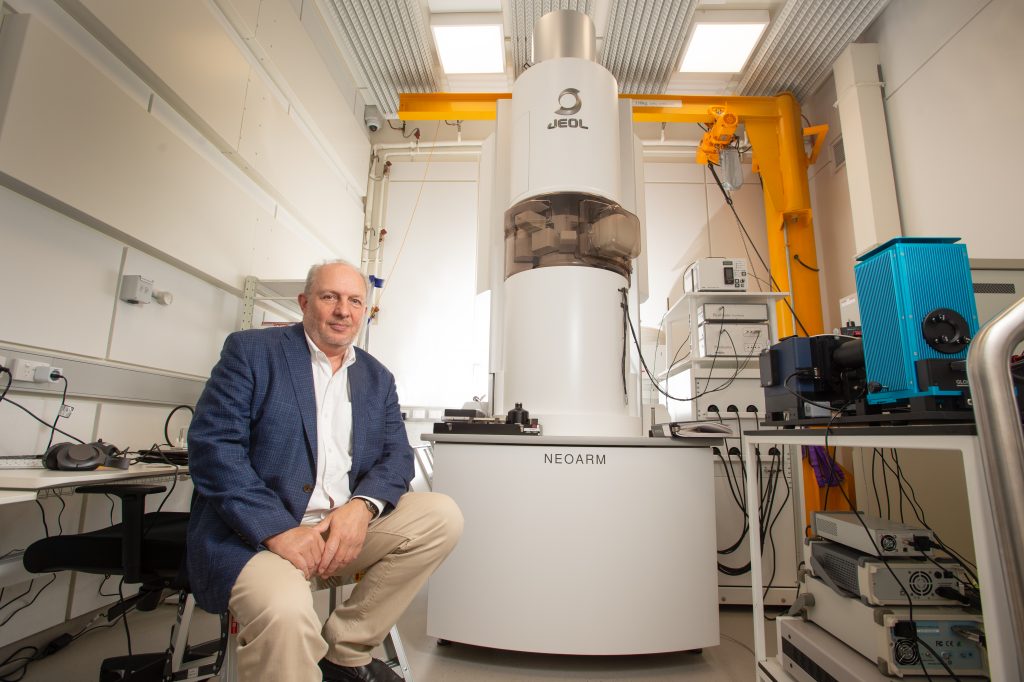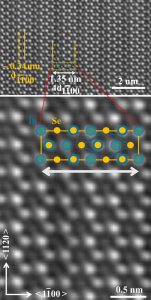
QUT’s Centre for Materials Science has taken a major step forward in advanced materials research with the installation of cutting-edge in situ Transmission Electron Microscopy (TEM) systems—placing the university at the forefront of atomic-scale discovery.
In situ TEM allows researchers to directly observe how materials respond to real-world conditions including heat, stress, light, chemical reactions, and electrical stimuli at the atomic scale and in real time. These insights are critical for designing next-generation materials for electronics, clean energy, catalysis and nanotechnology.
Over recent months, QUT’s Central Analytical Research Facility (CARF) has successfully installed and tested four state-of-the-art in situ TEM systems, funded through an Australian Research Council LIEF grant of more than $1.1 million, led by Professor Golberg and CARF Principal Specialist Associate Professor Jamie Riches. These systems have been integrated into a brand-new, double-aberration corrected JEOL 200 kV NeoARM TEM, one of the most advanced microscopes of its kind in the Southern Hemisphere.

taken on the NeoARM electron microscope.
“These in situ TEM systems let us see materials in action,” said Distinguished Professor Dmitri Golberg, Co-Director of the Centre and renowned physicist in nanotechnology, condensed matter physics and inorganic chemistry. “That’s essential for understanding materials behaviour under different conditions and gives us clues for their application potential.”
The new accessories make the system entirely versatile, like a Swiss Army knife for materials science, equipped to tackle challenges across multiple fields. Together, these tools enable researchers to analyse samples in liquid and gas environments and conduct electrical testing of materials at cryogenic and elevated temperatures.
“These unique capabilities allow us to accelerate innovation in areas like ion batteries, solar cells, catalysis and quantum materials,” said Associate Professor Riches. “This equipment sets QUT apart nationally and internationally, opening exciting opportunities for collaboration with researchers and industry worldwide. It is simply not available anywhere else in Australia at this scale and capability.”
The new TEM facilities will underpin pioneering research into green energy and advanced functional materials, strengthening Queensland’s position in global efforts to develop sustainable technologies.
📍 For more information about the Centre for Materials Science and its facilities, visit: https://research.qut.edu.au/cms/challenges-applications/characterisation-testing/